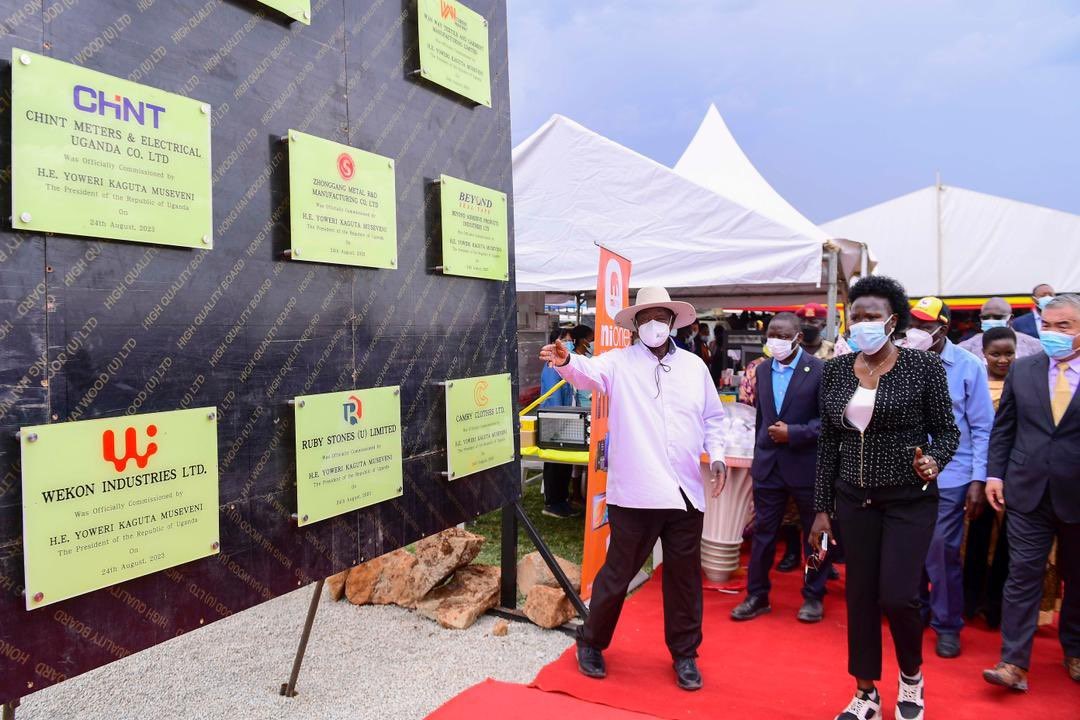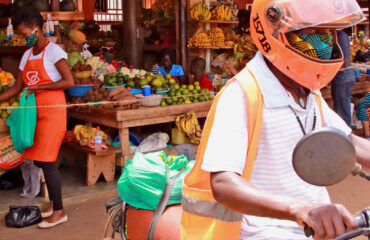
In a significant stride towards industrial development, President Yoweri Kaguta Museveni marked a momentous occasion as he inaugurated 16 new factories within the premises of the Uganda Investment Authority’s Mbale industrial park. This moment also witnessed the launch of comprehensive infrastructure development works for the Mbale Industrial Park, a venture poised to reshape Uganda’s industrial landscape.
Situated in the Mbale District and sprawling across an expansive 619 acres of land, the Mbale Industrial Park has emerged as a pivotal hub for economic growth and innovation. The story of its genesis dates back to 2018 when the Government of Uganda, through the Uganda Investment Authority, leased the land to M/S Tangshan. This strategic partnership aimed to provide serviced plots for investors eager to establish their presence within the industrial park.
The trajectory of the Mbale Industrial Park’s development unfolds in three phases spanning a five-year period. This journey adheres to a meticulously crafted implementation plan, investment and business strategy, financing framework, and local content approach. Currently, the industrial park boasts 34 investors operating at various stages, collectively employing over 5,000 Ugandans. As 2023 draws to a close, the anticipation grows for the unveiling of 10 additional factories, primed for inauguration.
After the launch of 16 factories at Mbale Industrial Park, President Museveni highlighted the significance of these new textile facilities within the industrial parks. He emphasized the need to discontinue importing second-hand clothes and instead, lend support to our domestic industries. President Museveni stated, ‘Industrialization is the pathway to a modern society.’ The investment project occupies 619 acres of land, and the 16 factories I have just inaugurated, including those already in operation, will produce items such as electric cables, electric meters, clothes, LED lights, and numerous other products. This initiative will rescue us from spending hundreds of millions of dollars on imports while simultaneously generating employment opportunities.”
In her statement, Hon. Evelyn Anite, the state minister for Investment and Privatization, underscored the factories’ role in reducing Uganda’s reliance on imported goods. She pointed out that the establishment of these industries has led to a significant increase in exports. Minister Anite revealed, ‘According to research from the Uganda Revenue Authority, the country used to spend 810 billion shillings on importing electricity cables. However, this figure will now decrease, resulting in savings of over 137 billion shillings. Additionally, we anticipate saving more than 17 billion shillings on sock imports.’ She also noted that UIA’s Mbale Industrial Park is part of the Government’s plan to develop 25 industrial parks, aiming to boost industrial production, job creation, and equitable economic transformation. The availability of more locally-made products will help to reduce the import bill and expand our export base.”
Furthermore, the Minister explained, ‘Previously, all the products currently being manufactured in Mbale and other industrial parks were imported. This led to a drain on foreign exchange and a loss of jobs.’ The investor not only contributes jobs to Ugandans but also imparts them with valuable high-end skills. At the TV and phone factories within the industrial park, young individuals in Mbale are actively involved in assembling phones and integrating various components. These skills are transferrable and hold great potential for the workforce.
Earning its place amongst the nation’s prestigious 25 industrial parks, Mbale Industrial Park stands as a testament to President Museveni’s vision of advancing local material processing for value addition. Notably, it holds a unique distinction as the industrial park in Uganda most touted by the Chinese government due to its promising geographical location.
Beyond its industrial significance, Mbale’s rapid urban development has magnetized a multitude of institutions, including universities, banks, hospitals, hotels, and shopping centres. This urban boom is further augmented by government-led initiatives like Operation Wealth Creation, Parish Development Model (PDM), the Youth Livelihood Programme, Emyooga, the Women’s Fund etc.
With the addition of robust infrastructure such as the industrial park, Mbale has transformed into East Africa’s agricultural powerhouse, becoming a vital source of sustenance for the country and the entire region.
The inauguration of the Mbale Industrial Park’s expansion stands as a testament to Uganda’s commitment to industrial progress and economic transformation. President Museveni’s strategic vision and unwavering dedication to nurturing economic growth have laid the foundation for a thriving industrial landscape, where innovation, opportunity, and prosperity converge.
Joshua Mushwa Potere
GCIC / State House



